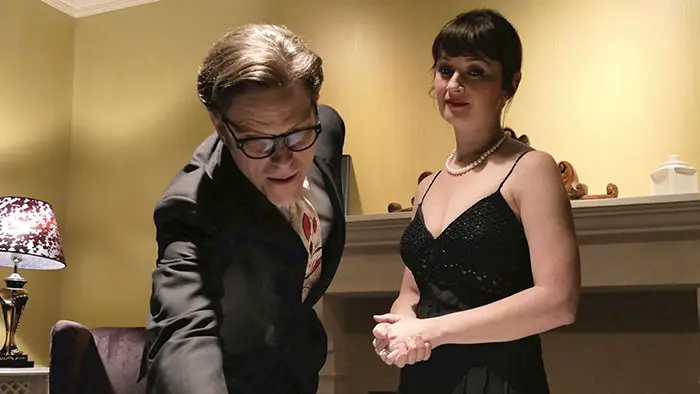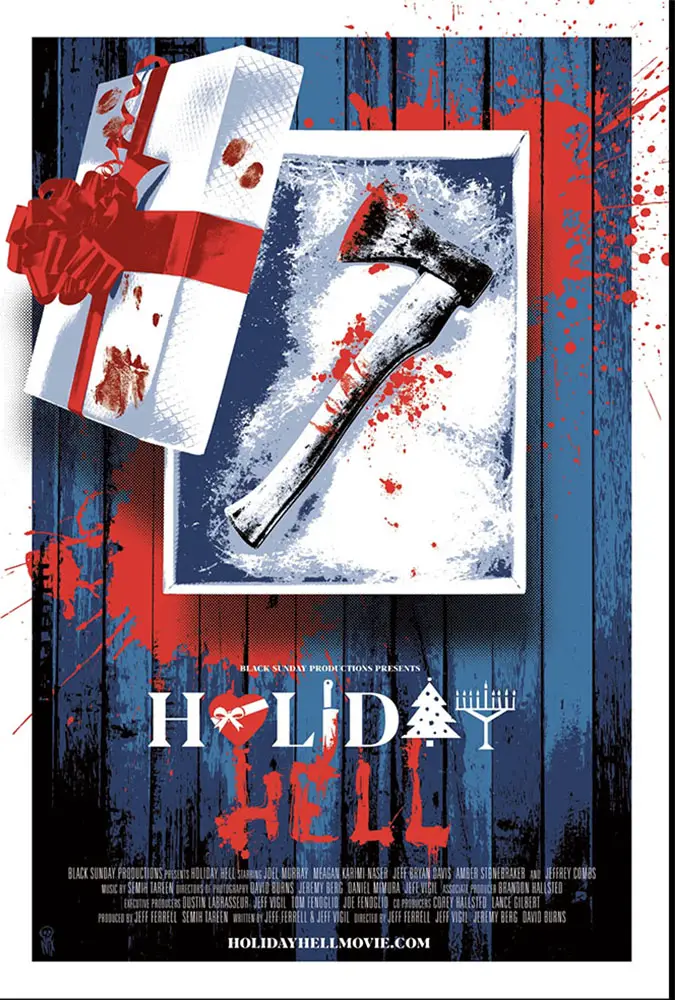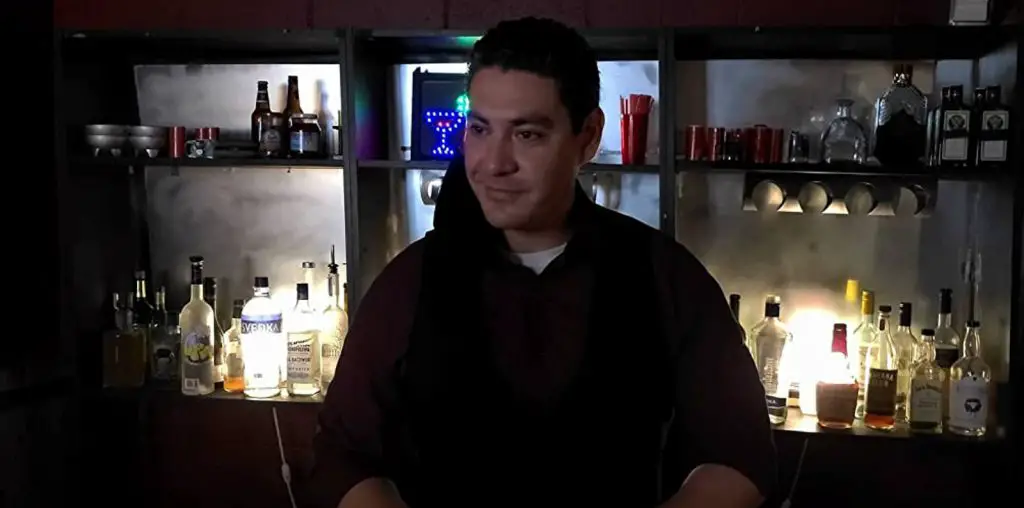
The second story, The Hand that Rocks the Dreidel, is a pretty blatant Child’s Play rip-off with a Semitic twist. A young boy is given a cursed doll for Hanukkah—perhaps possessed by a Gollum or dybbuk—who goes on to do his evil bidding. Despite its recycled elements, this chapter was a good bit of fun, largely owing to the performance of Amber Stonebraker as Lisa, the outlandishly cruel babysitter who is secretly plotting to rob the family with her dirtbag boyfriend. She is one of those deliciously mean characters who knows she is a villain and relishes it, making her demise all the more satisfying. Lisa is not just some faceless psycho killing indiscriminately, which allows for the drama to have real stakes. The story effectively plays with the horror paradox that even though something supernatural may be doing the killing, human impulses can prove the most monstrous. Ultimately, Dreidel worked due to solid direction from Jeff Ferrell, whose camera knew how to utilize visual gags and horror-humor to deliver a fun vamp on a familiar concept.

“…even when he embodies the rather distasteful persona of white male decline, he always manages to bring real humanity…”
The third story, Christmas Carnage, is easily the strongest and also best bridges the holiday theme. It tells the story of Chris, your typical middle-aged, unremarkable shlub portrayed by Joel Murray. Murray has played similar variations on this character in Mad Men and God Bless America, but even when he embodies the rather distasteful persona of white male decline, he always manages to bring real humanity and pathos to the roles. As the symbolic “everyman” of a now bygone time, we may not want to identify with him, but we can certainly understand how he feels. Chris is passed over for a promotion at work, cuckolded by his younger replacement, and seems to be the butt of office jokes for a drunken incident the previous year. Like Hand that Rocks the Dreidel, Christmas Carnage manages to make an impact and stand out by localizing its stakes. One way in which this is cleverly achieved is by subverting the typical horror locale; the majority of the story is set in that special but rarely interrogated, level of hell: the corporate holiday party. When Chris pops a few experimental pills made by the pharmaceutical company he works for, an angry voice inside him compels him to murder all those who have wronged him, taunting: “Are you just gonna let them run over you like that, big man? Or are you gonna do something about it? They’re gonna keep walking all over you unless you make them pay.” This element cements the message of the film, which is not meant to ally us with Chris’ sadistic rampage, no matter how much we hate the people putting him down. Rather than say he is right, it takes the nihilistic perspective that this entire world is wrong, and his avenging is just an extension of the wrongness of it all. Also, the kills were terrific! There was one, in particular, involving a nail gun, which I won’t spoil but that I can say I’ve legitimately never seen before, which in itself is an achievement.
The final story, Room to Let, which seeks to wrap up and tie in the framing narrative, did not work for me at all. Whereas the better chapters of Holiday Hell manage to subvert or reimagine familiar tropes, Room to Let felt like a retread of multiple properties from Hereditary, to House of the Devil, to Hot Fuzz. It has its moments, like the finale, which is gruesomely realized, but it was just too little too late for a story that felt wholly recycled, an issue that pervades the entire film. Ultimately, Holiday Hell does not always overcome its influences and often struggles to define its own voice within the milieu it is exploring. Nevertheless, this series of horror anecdotes was clearly made by a group of passionate people who were having fun and, for portraying such dark and violent subject matter, the film almost always has a sense of humor about itself, which even some of the best horror struggles to achieve. That alone is worth the price of admission.

"…a pretty blatant Child’s Play rip-off with a Semitic twist."

